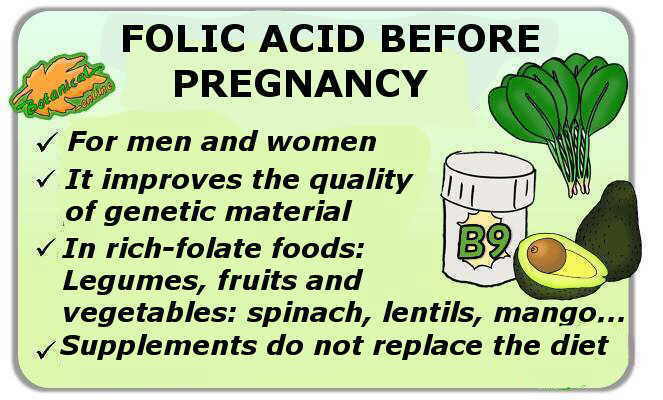Benefits of Folic Acid in Pregnancy
Folic acid, also known as folate or vitamin B9, is a crucial nutrient for pregnant women. It plays a vital role in the development of the baby and can have long-lasting benefits for both mother and child. In this article, we will delve into the comprehensive benefits of folic acid in pregnancy and highlight its importance for a healthy pregnancy.
Prevents Neural Tube Defects
One of the most significant benefits of folic acid in pregnancy is its ability to prevent neural tube defects (NTDs). These are serious birth defects that affect the brain, spine, or spinal cord of the developing fetus. By taking folic acid supplements before conception and during early pregnancy, the risk of NTDs can be significantly reduced.
Supports Fetal Development
Folic acid is essential for the proper development of the baby’s neural tube, which later forms the brain and spinal cord. Adequate folic acid intake during pregnancy ensures the healthy growth and formation of these vital structures. Additionally, it plays a crucial role in the production and repair of DNA, the building blocks of life, supporting overall fetal development.
Reduces the Risk of Anemia
Pregnant women are at a higher risk of developing anemia due to increased blood volume and the demands of the growing fetus. Folic acid aids in the production of red blood cells and helps prevent anemia. By maintaining optimal levels of folic acid, expectant mothers can reduce the risk of anemia and its associated complications.
Prevents Preeclampsia
Preeclampsia is a potentially dangerous condition characterized by high blood pressure and damage to organs, such as the liver and kidneys, during pregnancy. Studies have shown that folic acid supplementation can help reduce the risk of developing preeclampsia, promoting a healthier pregnancy for both the mother and the baby.
Supports Maternal Health
Folic acid is not only beneficial for the baby’s development but also for the mother’s health. It aids in the production of red and white blood cells, supports the immune system, and helps convert food into energy. Adequate folic acid intake during pregnancy can contribute to the overall well-being of expectant mothers.
Food Sources of Folic Acid
While folic acid supplements are commonly recommended during pregnancy, it is also important to incorporate foods rich in folate into the diet. Some excellent sources of folate include leafy green vegetables, citrus fruits, legumes, fortified cereals, and nuts. By consuming a balanced diet, pregnant women can ensure they are getting sufficient folic acid naturally.

Folic acid plays a crucial role in promoting a healthy pregnancy and supporting the development of the baby. Its benefits range from preventing neural tube defects and reducing the risk of anemia to supporting maternal health and preventing preeclampsia. By understanding the importance of folic acid and incorporating it into their daily routine, expectant mothers can give their babies the best start in life. Remember, always consult with a healthcare professional for personalized advice regarding folic acid supplementation during pregnancy.
Frequently Asked Questions
1. What is folic acid?
Folic acid is a synthetic form of vitamin B9, which is crucial for the development of a healthy fetus.
2. Why is folic acid important during pregnancy?
Folic acid helps in the formation of the baby’s neural tube and can prevent major birth defects in the baby’s brain and spine.
3. How much folic acid should I take during pregnancy?
The recommended daily dose of folic acid for pregnant women is 400-800 micrograms (mcg).
4. When should I start taking folic acid during pregnancy?
It is recommended to start taking folic acid supplements at least one month before conception and continue throughout the first trimester.
5. Can I get enough folic acid from food alone?
While it is possible to get some folic acid from food sources like leafy greens, citrus fruits, and fortified grains, it is difficult to meet the recommended dose through diet alone. Supplements are usually necessary.
6. Are there any risks associated with taking folic acid during pregnancy?
Folic acid is generally safe for pregnant women. However, extremely high doses may mask the symptoms of vitamin B12 deficiency, so it’s important to follow the recommended dosage.
7. Can folic acid improve fertility?
Folic acid does not directly improve fertility, but it is essential for the development of a healthy baby once conception occurs.
8. Can men benefit from folic acid during pregnancy planning?
While folic acid is primarily important for women during pregnancy, men can also benefit from maintaining adequate levels of folic acid for overall reproductive health.
9. Are there any side effects of taking folic acid?
Folic acid is generally well-tolerated, but some people may experience mild side effects such as nausea, bloating, or gas. Consult your healthcare provider if you have any concerns.
10. Should I continue taking folic acid after giving birth?
It is recommended to continue taking folic acid supplements if you are planning to conceive again in the future. However, consult your doctor for personalized advice.




